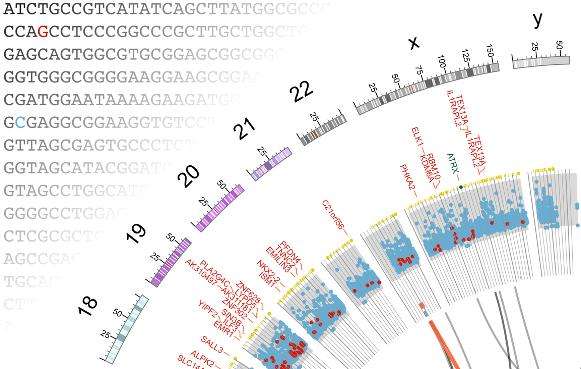New research paves the way for improved individual treatment of patients with cancer

A new study headed by a research group from Aarhus University Hospital and Aarhus University in Denmark has found new molecular sub-groups in early stages of bladder cancer. This improves the understanding of why some tumours develop aggressively and this discovery may lead to optimized treatment.
Bladder cancer is a frequent disease affecting approximately 1,900 persons in Denmark annually. A high number of these patients only have superficial tumours in the bladder when the disease is diagnosed. For many years, this patient group will be examined frequently and during this time many get new tumours; some cases develop aggressively making it necessary to remove the bladder or receive chemotherapy.
A research team from Aarhus University Hospital and Aarhus University headed by professor Torben Ørntoft and professor Lars Dyrskjøt has been in charge of a larger European research project mapping the molecular mechanisms of early stages of bladder cancer in 460 patients in Denmark, Sweden, The Netherlands, Germany, Spain and Serbia. The researchers found that tumours can be divided into three primary classes with very different molecular and disease-developing characteristics. These findings may be important in risk assessment and subsequent choice of treatment.
The researchers found that bladder tumours from the molecular group with high risk of developing aggressive disease contain mutations in genes and molecular pathways often associated with later stages of the disease. Moreover, the researchers observed changes in genes involved in genome structure regulation in 86% of the tumours. This new knowledge can facilitate use of new drugs targeted at these specific changes.
"This study provides new and valuable insight into the biology of the tumours in the earliest stages of the disease. Clinical and pathological examinations of the individual tumours do not always reflect the risk of later disease aggressiveness. This study provides a tool for risk assessment of the patients and thus for providing optimal treatment", says professor Lars Dyrskjøt from Department of Molecular Medicine, Aarhus University Hospital.
More information: Comprehensive Transcriptional Analysis of Early-Stage Urothelial Carcinoma, Cancer Cell 30, 1–16, July 11, 2016, DOI: 10.1016/j.ccell.2016.05.004


















